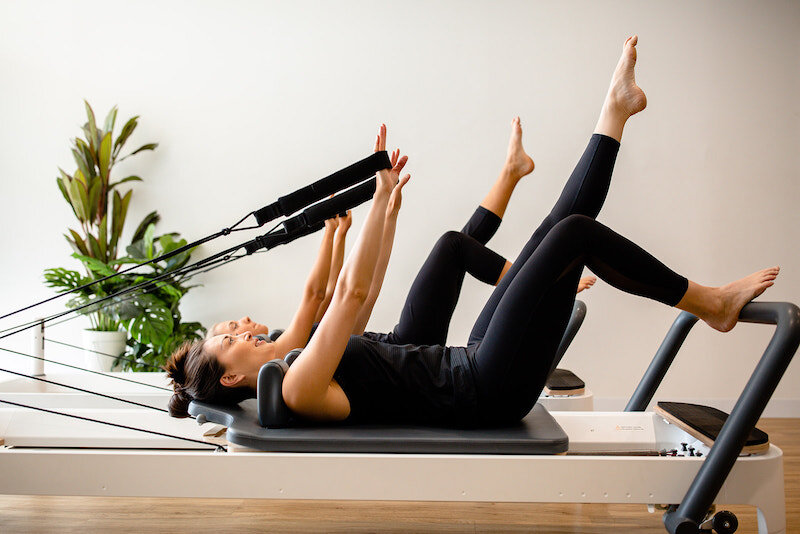What is Reformer Pilates and Why is it Good For You?
Joseph Pilates proposed his exercises back in the 1920s to improve posture, flexibility, strength and mental well-being. Almost 100 years later, research is still finding Pilates to be a superior form of exercise. With the exciting news that we are re-opening our Pilates and Exercise Studio, there has never been a better time to give Pilates a try. After weeks of working from home, often with a less than optimal desk set up and with the closure of all forms of gyms and exercise studios, a lot of us are feeling stiffer and weaker than we would like to. Pilates can be the solution to getting you back on track after this isolation period.
Clinical Reformer Pilates decreases stiffness.
A summary of systematic reviews by Kamioka et al (2016) assessed the current effectiveness and impacts Pilates has on health-related outcomes. The findings reported numerous benefits including improvements in dynamic balance, muscular endurance, flexibility, and reduced body fat percentages. For those of you who have been noticing an increase in lower back pain and stiffness while working from home, Kamioka et al (2016) also reported Pilates can be effective at reducing pain and improving functional ability. These benefits have been noted in one of our other blogs, ‘What is the best exercise for lower back pain?’
During this isolation period, there have been numerous people jump on the recreational running bandwagon to keep up their fitness. But as discussed in our previous blog, ‘How to stay fit during isolation', going too hard too quickly is strongly linked to a rise in injury risk and many of us have gone from not running for months, or possibly years, to doing it several times a week. If you are noticing some niggles or injuries beginning to arise, you should note that Pilates perfectly compliments running to keep you free from injuries!
Clinical Reformer Pilates decreases the risk of injury.
Laws et al (2017) published a study proving just how beneficial Pilates can be for recreational runners. Over a six-week period, individuals completing Pilates with physiotherapists were able to significantly improve their functional movement ability, with enhanced hip and knee control and improved lower limb alignment. These are all crucial factors in running and with enhanced functional movements, the risk of developing a running related injury is significantly reduced.
Pilates here at Keilor Road Physiotherapy is specifically targeted towards your individual needs and goals, whether that be for flexibility, strength, conditioning, injury rehabilitation or injury prevention. Book an appointment with one of our expert Pilates physiotherapists if you are wanting to test the benefits of Pilates for yourself. Servicing Niddrie, Essendon, Airport West, Keilor & Melbourne’s Northern suburbs for over 40 years, you can book with one of our highly trained expert physiotherapists below or call 93794557 to speak to one of our admin superstars.
Related links
References:
Kamioka, H., Tsutani, K., Katsumata, Y., Yoshizaki, T., Okuizumi, H., Okada, S., Park, S. J., Kitayuguchi, J., Abe, T., & Mutoh, Y. (2016). Effectiveness of Pilates exercise: A quality evaluation and summary of systematic reviews based on randomized controlled trials. Complementary therapies in medicine, 25, 1–19. https://doi.org/10.1016/j.ctim.2015.12.018
Laws, A., Williams, S., & Wilson, C. (2017). The Effect of Clinical Pilates on Functional Movement in Recreational Runners. International journal of sports medicine, 38(10), 776–780. https://doi.org/10.1055/s-0043-111893
Article by
Lochie Armstrong | Pilates
Lochie is a qualified and passionate Pilates teacher, having completed her Certificate IV in Pilates Reformer and Matwork at Breathe Education. She approaches teaching Pilates through current evidence-based practice.



